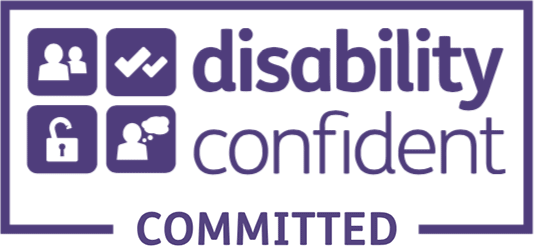Jessica's story
Living with a mental health condition can be overwhelming at times. The Staffordshire Recovery Hub supports people who use their service to break down the barriers preventing them from living a fulfilled and independent life.
The service has been supporting 22-year-old Jessica since August 2020. Jessica has suffered from selective mutism since she was 7 years old.
Selective mutism is a severe anxiety disorder where a person is unable to speak in certain social situations, such as with classmates at school or to relatives they do not see very often.
The service adapted the support they provided Jessica including contacting her via text messages rather than via a phone call.

We spoke to Jessica to hear here story:
“It's hard to say out loud and I was in two minds about telling you this, just because of people's prejudgement. If you are unaware, selective mutism (SM) is a form of social anxiety, more common in younger children, which prevents the sufferer to speak in certain social situations.
“I was diagnosed with SM and severe anxiety at the age of 7. It was a tough time not being able to speak at school and in social situations, and not really having any friends, I couldn't communicate with family outside of my parents and my one set of grandparents, friends, family and just strangers just assumed I was a rude or just a shy child when it was way more than that.
“Imagine having the lowest confidence in the world, and the way people deal with that is by moaning that you're rude... let me tell you that is not the best thing in the world.
“When I grew up, I wanted to be able to talk to people. I wanted to feel understood and I wanted to be able to answer all those questions I couldn’t answer when I was younger. I dreamed and dreamed of what I would say when I could, and how I would help people to understand. However, this is something people would not know how you truly feel unless they have gone through it too.
“People would ask me questions and I would feel my throat and chest getting tighter no matter how hard I tried to get the words to come out of my mouth, they were physically stuck, I wished I could talk like everybody else.
“SM isn't something you grow out. The earlier a child is identified as being selective mute and given ways to manage their anxiety, the better. Even though I was diagnosed quite young, I was still unable to talk at school and I started to whisper when I was in secondary school. In my later teen years, I also started to suffer from depression. I think this was partly due to the way I have been treated by people throughout my life.
“I am learning that all of this is okay. Whether I can or cannot talk, whether people like it or they don’t, whether I am understood or judged harshly … what really matters is how I feel inside of myself, and acknowledging how far I have come.
“Today, I still find it difficult to talk. Words still get stuck on their way out, and sometimes I feel like I lose them completely. Sometimes what I want to say comes out as something that doesn’t quite sound like I wanted it to. Sometimes, words just fall out of my mouth, and they don’t appear to make any sense. Other times I still can’t say anything at all.
“Even after everything I have been through I wouldn't want to change it as it has made me the person I am today.”
Jessica has put together some information to help people learn more about selective mutism and provide more information into her own experiences, download it here.
The Staffordshire Recovery Hub approaches every individual's recovery journey differently, so it tailor-made for them. The service does their best to encourage the people they support to be optimistic and positive and try and find the right recovery path for them.
For support and advice on selective mutism, click here.
If you found this page useful, please share and help others find it






